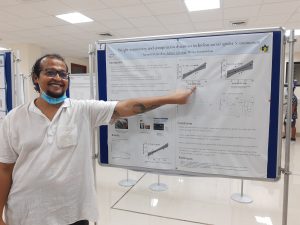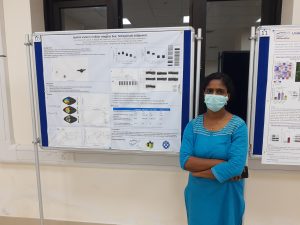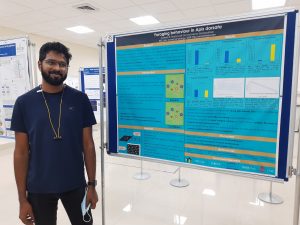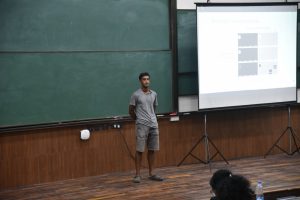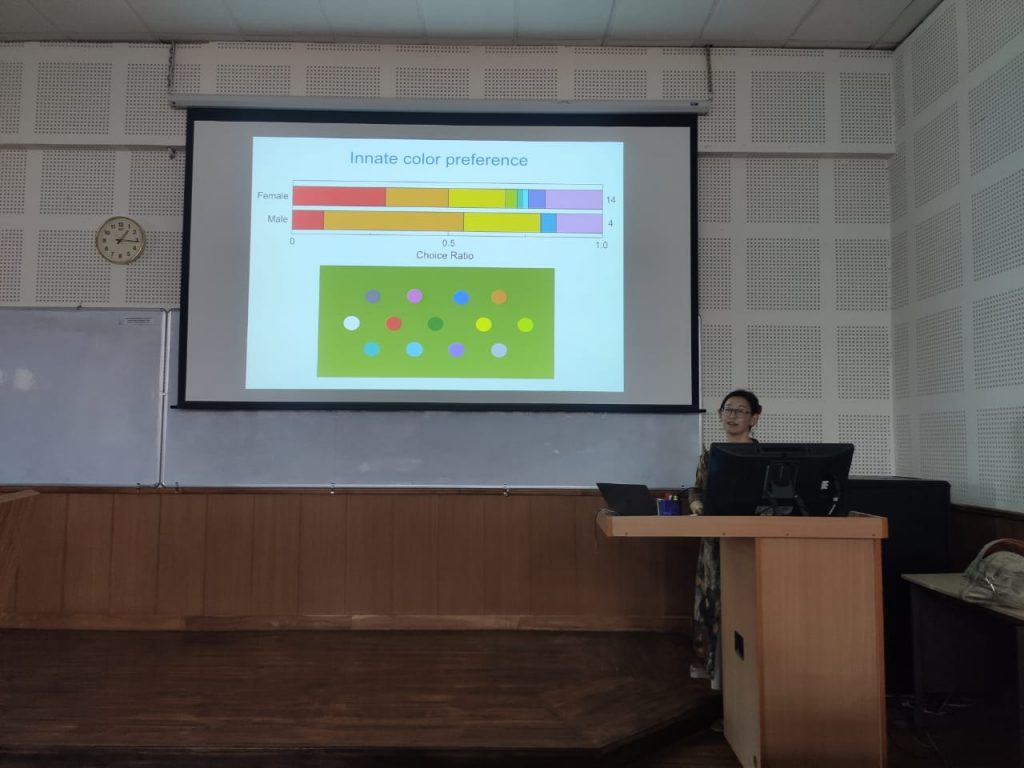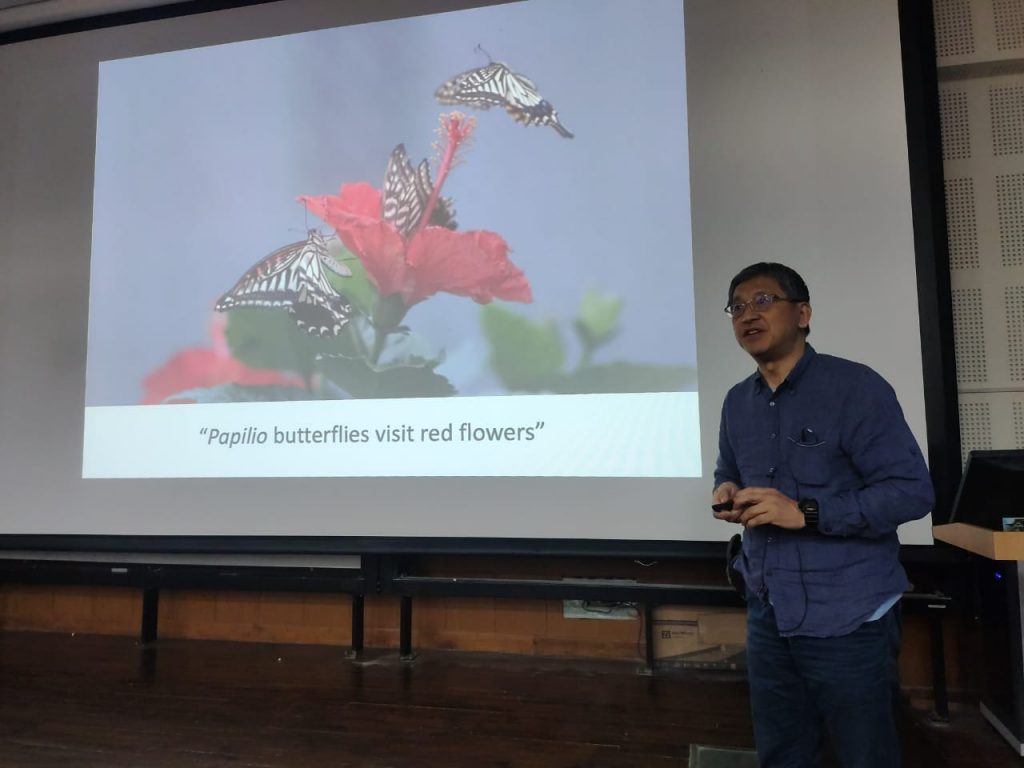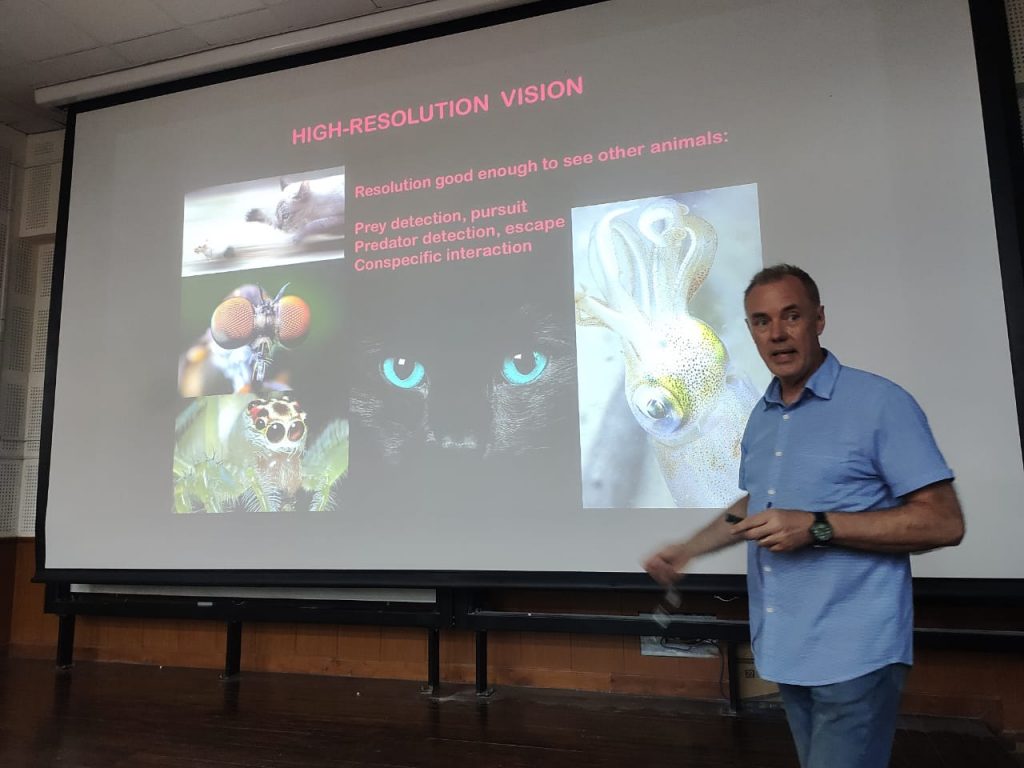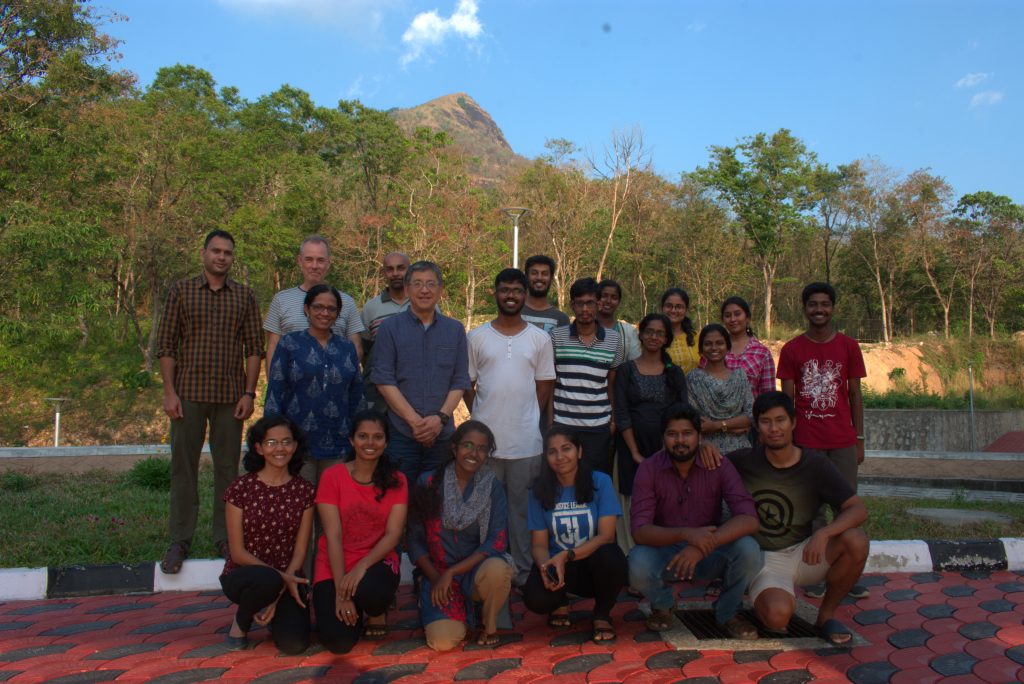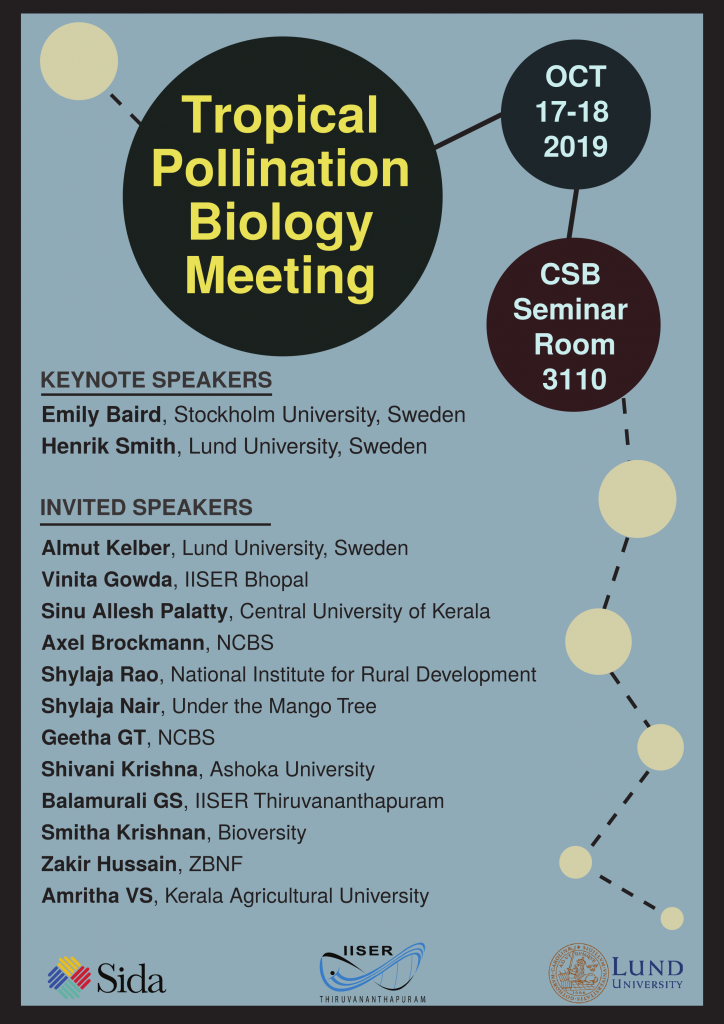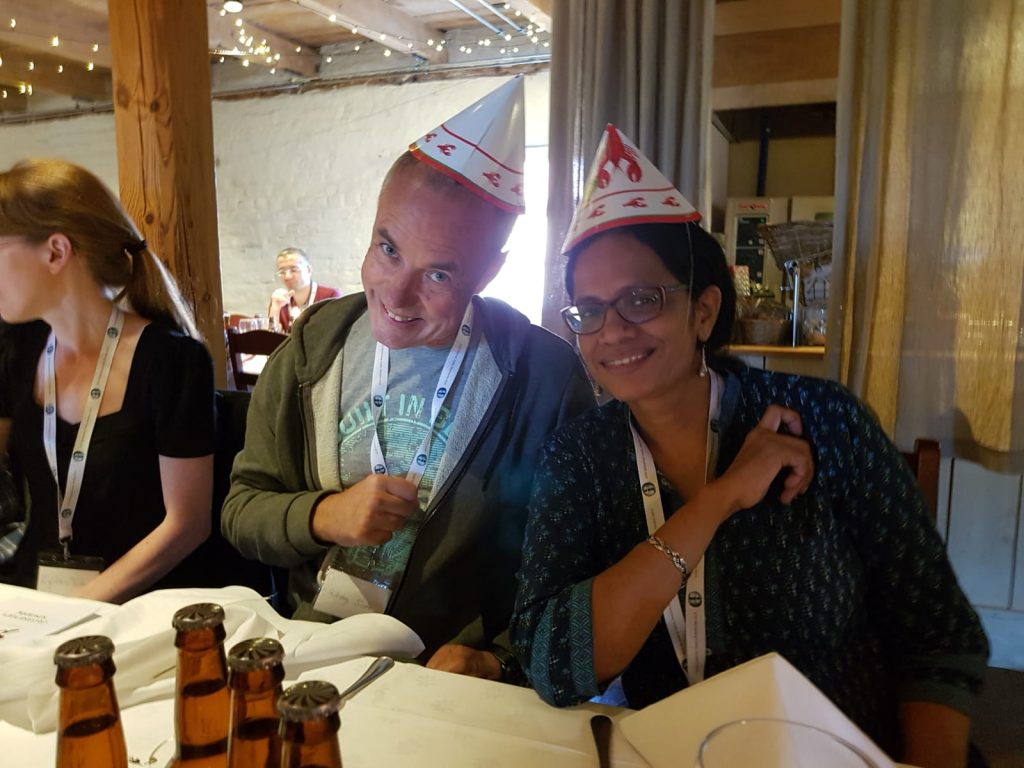Aditya, Anumit, Asmi, Reshma and Sudeep presented a part of their works during the poster presentation at the FS-BIO symposium, 2022. Sajesh gives a students talk on the “Shimmering behaviour of Apis dorsata” and bags the “Flash talk award” for the same.
Well presented you guys!
Below are the pics of Aditya, Asmi, Reshma and Sudeep flaunting their posters.
Last one is Sajesh giving his talk.
Picture courtesy: Anumit Saralkar (1-4), Yash Bhale (5).
